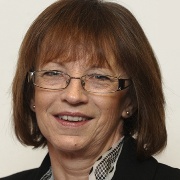Dilemma: GP prescribes antidepressants for her daughter


Dr Dennis Cox: Have a frank talk with your colleague
‘Whenever possible you should avoid providing medical care for someone to whom you have a close relationship’: that is what the GMC says. In the real world, we know that it is not so straightforward as that. It is not easy to see family members suffer when you know that you have the knowledge and skills to help them, it is also hard to appear indifferent, when a family member asks you directly for help.
As with most things, it boils down to exercising judgment, and ‘doing no harm’, which is never easy. In this case, there is a real chance that the dual role of being a parent and a physician could do harm to a vulnerable person.
As always, the first thing to do is to have a conversation with the GP concerned (listening more than talking). They are likely to accept that behaving in this way is not ultimately in the best interests of their child and that there should be a better way of managing the situation. As for reporting it or raising a concern, that is a matter of judgment for you – but take advice before you do it.
Dr Dennis Cox is a GP in St Ives, Cambridgeshire and RCGP national commissioning champion

Dr Richard Ma: Try to be sympathetic to the GP’s circumstances
My gut feeling is that we should refrain from treating friends and family, but I appreciate sometimes this can be difficult due to circumstances (on holiday, in a remote area or when there are problems with access).
The GMC has an interesting section on ‘Should doctors provide medical care for their families?’. Currently the guidance on Good Medical Practice states: ‘Wherever possible, you should avoid providing medical care to anyone with whom you have a close personal relationship.’
I would like to understand her circumstances for prescribing for her daughter; also for her daughter’s sake, make sure she is getting appropriate treatment and follow up. This is probably a difficult issue for the family already, and it would be prudent to be non-judgemental and sensitive in handling this case. I might recommend that her daughter registered with another practice so that none of the doctors are be professionally compromised by having to sign her prescriptions.
Dr Richard Ma is a GP in Islington, north London

Dr Wendy Pugh: If you can’t stop it, at least keep a clear record
Prescribing medication for people you have a close personal relationship with, such as a friend or relative, is frowned on by the GMC. This is not only because of the difficulty of maintaining objectivity but also because access to the patient’s medical notes may be limited if the patient is registered elsewhere.
This may limit the ability to prescribe safely (without a record of contraindicated medication or allergies, for example) and cause difficulties for other doctors treating the patient who will be unaware of earlier management. If prescribing to a relative is unavoidable, the GMC expects the doctor to make a clear record justifying why there was no alternative, and also inform the other person’s GP about medications prescribed, unless the other person objects.
It seems that the GMC guidance hasn’t been followed in this case which is concerning given that the BNF recommends that young patients on fluoxetine should be carefully monitored as they may be at an increased risk of suicide and self harm. You should raise your concerns with the GP in question, sympathetically explaining why her actions could be seen as unethical and that she may be putting her daughter’s health at risk.
You could suggest that the daughter registers with another GP in the practice or ideally with another practice. If the GP refuses, you may need to raise your concerns further within the practice. Ultimately, you have a duty to take action and should not ignore your concerns.
Dr Wendy Pugh is a medico-legal adviser at the MDU
Visit Pulse Reference for details on 140 symptoms, including easily searchable symptoms and categories, offering you a free platform to check symptoms and receive potential diagnoses during consultations.










